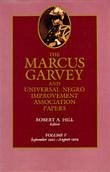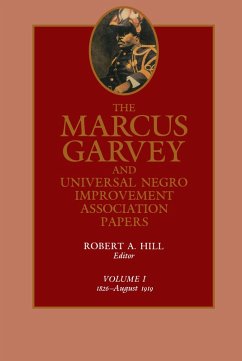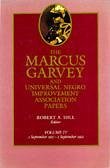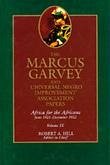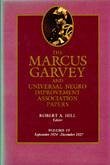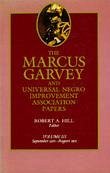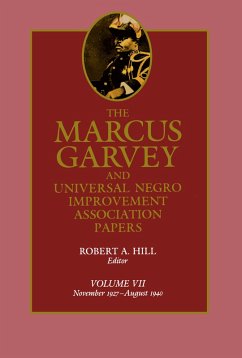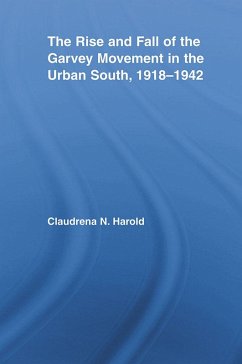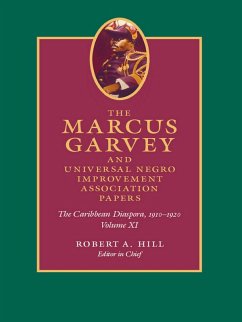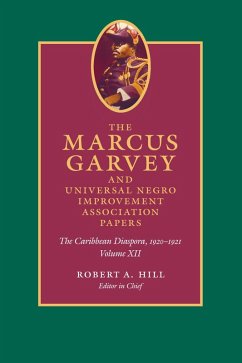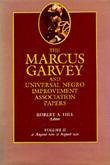
The Marcus Garvey and Universal Negro Improvement Association Papers, Vol. II (eBook, ePUB)
August 1919-August 1920
Redaktion: Hill, Robert Abraham

PAYBACK Punkte
37 °P sammeln!
This second volume of Robert A. Hill's monumental ten-volume survey of Marcus Mosiah Garvey's extraordinary mass movement of black social protest covers a period of rapid growth. The Universal Negro Improvement Association, with its "Africa for the Africans" program of racial nationalism, rapidly gained in strength in the aftermath of Garvey's successful meeting in Carnegie Hall in August 1919, and culminated in its spectacular First International Convention of the Negro Peoples of the World in 1920. Hill has compiled a wealth of archival documents and original manuscripts, with descriptive so...
This second volume of Robert A. Hill's monumental ten-volume survey of Marcus Mosiah Garvey's extraordinary mass movement of black social protest covers a period of rapid growth. The Universal Negro Improvement Association, with its "Africa for the Africans" program of racial nationalism, rapidly gained in strength in the aftermath of Garvey's successful meeting in Carnegie Hall in August 1919, and culminated in its spectacular First International Convention of the Negro Peoples of the World in 1920. Hill has compiled a wealth of archival documents and original manuscripts, with descriptive source notes and explanatory footnotes. He provides a fascinating account of the spread of Garvey's movement, which was seen-and feared-by officials in America, Europe, and colonial governments in Africa and the Caribbean as the major ideological force promoting radical consciousness among blacks. Hill continues the comprehensive outline begun in Volume I of Garvey's Black Star Line, the all-black merchant marine, and documents the beginnings of Garvey's proposals for massive loans to the Liberian government. These controversial financial schemes led to Garvey's reputation as a swindler, and Volume II details the first charges of fraud. The federal investigation of Garvey broadened and deepened during 1919--1920, with J. Edgar Hoover--then an assistant to the attorney general--continuing to search tor grounds to deport Garvey. Included here are numerous repons from government agents and informers, which provide a valuable ponrait of day-to-day UNIA operations. Volume II ends with the UNIA's 1920 convention, presented by Garvey as a turning point in the history of black-white relations. The legislation and the elective offices produced by that convention were intended to form a virtual government in exile for Africa, fulfilling Garvey's ambition to practice statecraft and create the symbols of black nationhood and sovereignty. This volume is the second of six that focus on America; the seventh and eighth focus on Africa, and the last two on the Caribbean. Hill has brought together far more than a portrait of a single intriguing historical figure. Garvey's movement was a mass social phenomenon, an Afro-American protest movement with strong links to African and Caribbean nationalism in the first decades of the twentieth century.
This second volume of Robert A. Hill's monumental ten-volume survey of Marcus Mosiah Garvey's extraordinary mass movement of black social protest covers a period of rapid growth. The Universal Negro Improvement Association, with its "Africa for the Africa
This second volume of Robert A. Hill's monumental ten-volume survey of Marcus Mosiah Garvey's extraordinary mass movement of black social protest covers a period of rapid growth. The Universal Negro Improvement Association, with its "Africa for the Africa
Dieser Download kann aus rechtlichen Gründen nur mit Rechnungsadresse in A, D ausgeliefert werden.




